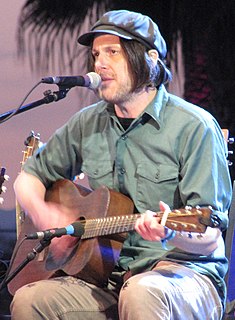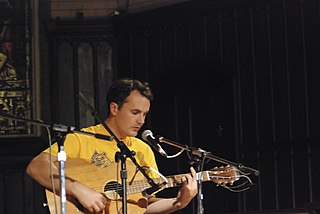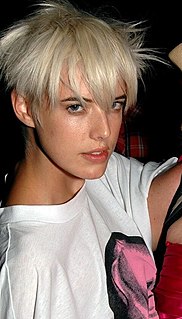A Quote by Danielle Dutton
It's all just so fraught when you're writing and then going through the editorial process. It feels like this shape-shifting thing. When it's done, and you can't change a single word, it's a totally different thing. I was surprised by what that thing was.
Related Quotes
I think that so much of the creative process is a fragmentary one, and then it's about just allowing your intuition to put it together for you. It's funny how you create something and you think you're going in a million different directions, and then the thing you end up with is the thing that you wanted to create your whole life, but you're just as surprised by it as anybody else.
Nothing is wrong with you. You're not different. Everybody feels as bad as you do: this is just what writing a novel feels like. To write a novel is to come in contact with raw, primal feelings, hopes and longings and psychic wounds, and try to make a big public word-sculpture out of them, and that is a crazy hard thing to do.
When I pick up a pencil, that this is a rough draft. This is not going anywhere, and no one's going to see it. You have permission to make all the mistakes you want. It signals freedom to me, and it signals mistakes. Then when I put it on the computer, a different part of my brain kicks in and I really evaluate every single word and sentence and make decisions. I like that step of polishing while I'm rewriting the entire thing, not just cutting and pasting. Really putting in every word and making a decision: is this something I can stand by?
My writing process isn't a very organized thing. The actual writing part is a tiny part of my life. I often write in public. I bring my laptop or write freehand in notebooks. Then, I'll read through them while I exercise or walk the dog. The very last thing I do is the sitting alone at the computer part.
The writing process for a short story feels more like field geology, where you keep turning the thing over and over, noting its qualities in detail, hammering at it, putting it near flame, pouring different acids on it, and then finally you figure out what it is, or you just give up and mount it on a ring and have an awkward chunky piece of jewelry that seems weirdly dominating but that you for some reason like. I could be wrong about field geology here.
My cure for writer's block is to step away from the thing I'm stuck on, usually a novel, and write something totally different. Besides fiction, I write poetry, screenplays, essays and journalism. It's usually not the writing itself that I'm stuck on, but thing I'm trying to write. So I often have four or five things going at once.
It's kind of interesting to experience that kind of a ride after well, essentially so many years of enjoying a career based on failures and then suddenly something clicks. The weird thing is, I never changed a thing. The process is still the process as it ever was. The fact that people decided to go and see a movie that I was in was probably the most shocking thing that I've ever been through.
When you're going through something, whether it's a wonderful thing like having a child or a sad thing like losing somebody, you often feel like 'Oh my God, I'm so overwhelmed; I'm dealing with this huge thing on my own.' In fact, poetry's a nice reminder that, no, everybody goes through it. These are universal experiences.

































